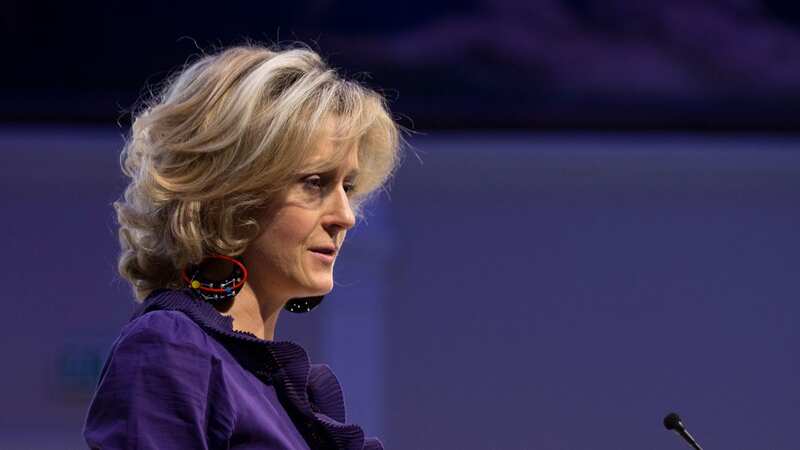'It's the economy, stupid' says Lastminute.com co-founder in digital plea

Lastminute.com co-founder Baroness Lane-Fox has called for an end to digital exclusion, telling peers at Westminster: "It's the economy, stupid."
She quoted Bill Clinton strategist James Carville, who coined the phrase in 1992, and said digital inclusion must be improved to boost the UK's economic fortunes. The independent crossbench peer made her name during the dotcom boom of the early 2000s, later serving as the UK's digital champion.
She helped create the Government Digital Service, which launched gov.uk and spearheaded a campaign to improve computer literacy. She said: "I met a young man, the first person I spoke to in this whole journey, who said to me 'the internet saved my life'."
"He said, 'It saved my life because I learned how to make music online. I had been found with a terrible drug problem, I now have a purpose, I have skills I didn't have, I credit completely the internet with saving my life'. A more macro point is how we pose this question and I've been thinking about this a lot over the last decade I think it's framed completely wrong and I don't think we'll ever make the progress that we all clearly want if we don't reframe the question."
"This is about the economy. It's the economy, stupid. I've tried with the human stories, I've told that story about that young man in Leeds literally thousands of times, but that does not seem to have worked. It's the economy, stupid.
 Teachers, civil servants and train drivers walk out in biggest strike in decade
Teachers, civil servants and train drivers walk out in biggest strike in decade
"We won't be able to level up, we certainly won't be able to build back better, I don't believe we'll build a country that works for everyone unless we put a deep understanding of connectivity and internet access and skills and ability to afford it at the heart of how we do that. We just need to prioritise."
"It is impossible to function right now in our country if you do not have these basic skills, and the ability and affordability of them in your life. It is unacceptable that in a country that aspires to be one of the most digital in the world that we have not put this as a core ambition."
Her words came during a House of Lords debate on digital exclusion. Committee chairwoman Baroness Stowell of Beeston told her peers: "The pace of change and the huge social and economic implications underscore the need for more action on digital exclusion."
"Technology policy and particularly AI is a major Government priority. The consequences of these changes must be too. Digital divides are deepening, basic skills gaps persist, yet our inquiry found the Government is not paying nearly enough attention."
"Digital exclusion is not just about old people, though many of them are seriously affected it can affect people from all age groups and all walks of life. Two and a half million people in the UK can't do a basic digital task."
"Digital exclusion is not about asking for Government handouts or about giving everyone free internet, it's about making sure that everyone benefits from technological change and ensuring people are not left behind. It's about ensuring we don't create second class citizens who can't use online banking, NHS services like making a GP appointment or any public service, like submitting tax returns, applying for benefits, a new passport, a new badge parking permit."
Viscount Camrose, minister in the Department for Science, Innovation and Technology (DSIT), outlined several Government schemes that aim to improve digital inclusion. These include the £5 billion Project Gigabit, delivering fast broadband to hard-to-reach parts of the UK, and the £2.5 million digital lifeline fund, aiming to reduce digital exclusion for people with learning disabilities by providing free devices, data and digital support, and the 1.5 million laptops and tablets provided to disadvantaged children and young people.
He said: "We absolutely have to recognise the deep genuine concern that some will be left behind. This is something I personally and the Government overall take very seriously indeed, and that is why we don't want to just drive progress in tech, we want to do so responsibly, and we want to make sure that the tech we develop improves all lives across the country."
"Tackling digital exclusion is a very fundamental part of this, and a complex issue. No one department can solve this challenge. It will require close collaboration across Government."
Read more similar news:
Comments:
comments powered by Disqus
































